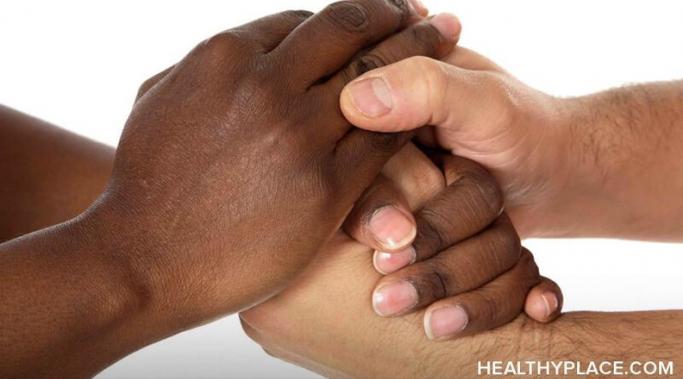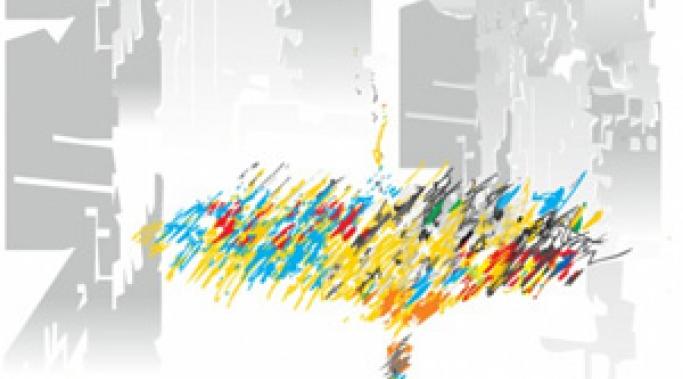I talk to many people who want to help a person with a mental illness. Often the people they want to help are loved ones who have just been diagnosed with a mental illness and those who want to help feel powerless.
The “helpers” have a hard job, but let me just say, we love you for it.
Impact of Bipolar
Every medical treatment comes with risk. If you have a headache, you could take ibuprofen or you could have a craniotomy looking for brain cancer. One has considerably more risk than the other. (Of course, if you have brain cancer, then the reward could be quite great.)
This means every time you undertake a bipolar treatment knowingly, or not, you weigh the risks vs. rewards in your head. And one of your doctor’s main jobs is to manage that risk vs. reward scenario. Doctors, for example, almost never prescribe barbiturates anymore due to the fairly large risk of addiction. Instead, they prescribe benzodiazepines (or nonbenzodiazepines; very similar) which do not carry such an increased risk. In both cases, they carry the reward of managing anxiety.
But some people don’t want to take benzodiazepines either, because some people tolerate more risk than others.
There is a common refrain that if you looked in the DSM, everyone would have some mental disorder. And in point of fact, many symptoms are fairly generic and can be attributed to many. Fatigue, insomnia, thoughts of death, loss of pleasure and weight loss are part of the depression diagnosis.
But the part no one seems to remember is what’s under that,
The symptoms cause clinically significant distress or impairment in social, occupational, or other important areas of functioning.
Some people believe that being crazy makes you creative (perhaps brilliant) and being creative makes you crazy. Similarly, along this line of logic is that taking medication makes you uncreative and perhaps, un-brilliant.
Well, pish-tosh I say.
Last week I waded into Charlie Sheen territory. It was, perhaps, a touch more eel-infested than I had anticipated but life is surprising like that. Yes, I said Sheen is going through a manic episode as part of a mental illness. (And no, I still haven’t become a doctor.) Let’s say for the moment, I’m right.
Since I made my case for compassion for Sheen and mental illness, over scorn and ridicule, people have made the case back that it’s the media’s fault Sheen’s behavior is this out of control.
I don’t think so.
I know this seems like an odd question, but I was considering it this morning (in my shower). It is a common problem for people with a mental illness. I have a tendency to avoid showering (really) and I know of others with a mental illness have gone weeks without showering.
So, if all we’re talking about is standing in some warm water, why don’t we want to shower?
Charlie Sheen's recent remarks may seen funny to some, but when I look at his statements and actions, to me they scream mania, a symptom of bipolar disorder.
I’m not known for my cheery everything’s-going-to-be-OK-puppies-rainbows-lollipops perspective. In fact, I’m against such perspectives. I find them disingenuous, phony, or seriously ill-informed. Save the rose-colored glasses for Sir Elton John, thank-you.
I find smiling, being positive and telling people how great everything is to be just another chore on my list of things to do today when I’m already busy just trying to keep breathing and possibly pay rent.
My brain is a finite resource. Well, the grey, gooey thing in the skull is finite for everyone. But my brain’s ability to think reasonably is a finite resource. When I write it thinks, thinks, thinks, and then there is a dramatic thud.
My brain then stops thinking.
I’m bipolar. Now wait, before you start to tell me about how “I’m a person with bipolar disorder,” you might want to know, I don’t care. I use the English language in a non-politically correct way. Call it a quirk.
I have a new one for you: I am stalked by bipolar disorder. Kind of like an angry ex-boyfriend for whom you have a restraining order but insists on constantly scaring and tormenting you anyway.



